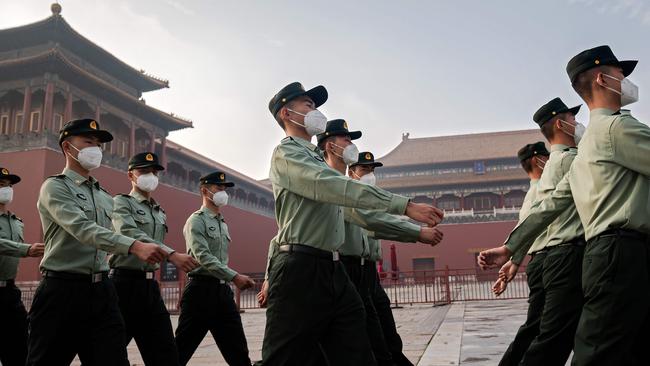
The collapse of the USSR in 1991 led to the rise of globalisation. At this time many believed that trade and prosperity would render ideological differences irrelevant. For the two decades or so leading up to the pandemic, this was probably correct. China developed a burgeoning middle class with a taste for Australian wine, lobster and more.
By 2021, the US’s chaotic withdrawal from Afghanistan suggested a global policeman that had grown tired of the role. The thinking seems to be that a new global order is required that is less driven by US interests. Globalisation appears to be in retreat as the world contemplates dividing into two hemispheres: one based on trade flowing freely between like-minded states, namely the US, Europe, Japan, Australia and others; the other based on the idea that US authority must be challenged, a view held by China, Russia, Iran and others.
This scenario has happened previously when two superpowers, Spain and Portugal, divided the world into plunderable parts. The Treaty of Tordesillas, signed in 1494, divided the world along a mid-Atlantic meridian, giving most of the Americas to Spain and Africa to the Portuguese. That bit of South America east of the mid-Atlantic meridian, today’s Brazil, speaks Portuguese; the rest of the Americas generally speak Spanish. In our region, Spain claimed the Philippines while the Spice Islands (mostly Indonesia) went to Portugal. The divide extended to dissecting the Australian continent east of Darwin and west of the Eyre Peninsula. Had this treaty – approved by the then global policeman, the pope – lasted for 300-plus years, Sydneysiders might now speak Spanish and Portuguese might prevail in Perth. But by the time Europeans started to settle Australia, the prevailing superpowers were the English, the Dutch and the French. The pope’s authority to issue a decree to superpowers had evaporated.
It may be that by the end of this decade our hitherto globalised world will have been vastly reimagined. But whichever way trading and other alliances may evolve and divide, I cannot see how Australia’s position will be substantially diminished (at least not without subjugation). We have the resources required by a world that will expand from 8 billion people to 10 billion over the next 60 years. Our resources, agribusiness and quality of life give us buoyancy in troubled times. What is more likely is that as the world divides and polarises, tensions will surface as some countries baulk at having to make a choice. In the end, self-interest will prevail: whatever delivers the best quality of life to the greatest number of people will always find a way of bubbling to the surface. And if this the case, then Australia will always have much to offer such a world.




There is a sense that the global order is being challenged yet again. After World War II, the old world based on European superpowers and their colonies was replaced by US military and corporate supremacy. In the decades that followed such has been the US’s strength, or perceived strength, that a global rules-based order has prevailed. Australia benefited mightily from this geopolitical arrangement: Japan, South Korea and others required unfettered access to Australian resources.